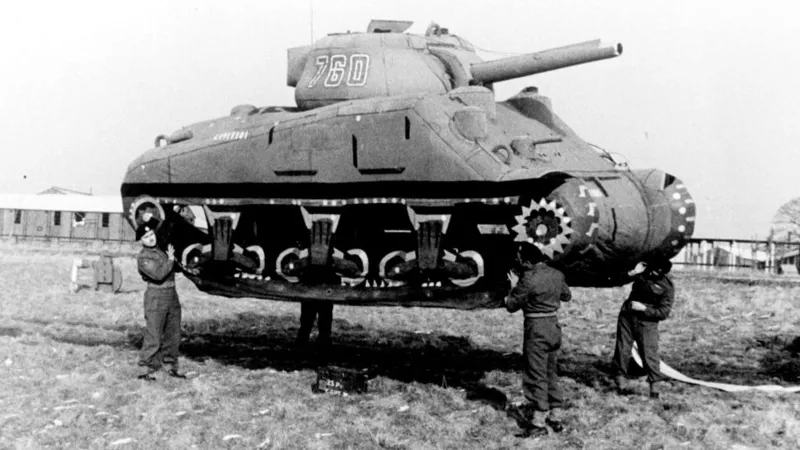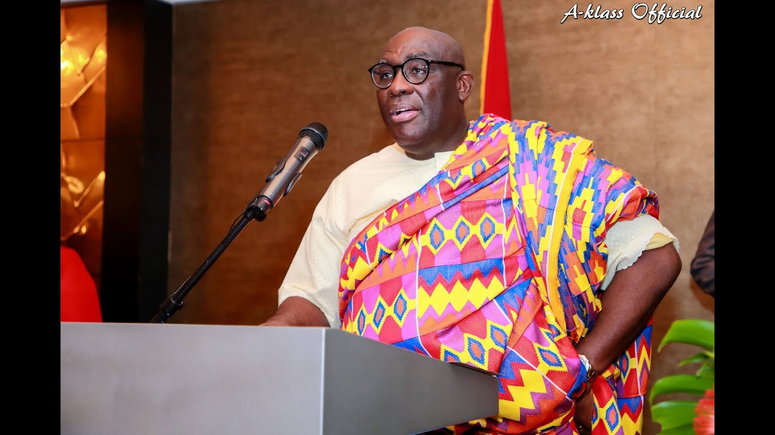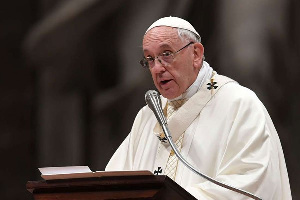World War Two ‘Ghost Army’ to get Congressional Gold Medal

Nearly 80 years after World War Two, members of secretive US units are being honoured for the clever ruses they used to save tens of thousands of lives.
Known as the “Ghost Army”, the group used inflatable vehicles and Hollywood-level special effects to fool the Germans about Allied war plans.
President Joe Biden signed a bill to award Congress’ highest honour to the Ghost Army in 2022.
Three aging veterans will be awarded at an event in Congress on Thursday.
Seymour Nussenbaum,100, a New Jersey native, is one of three Ghost Army soldiers who will be honoured in person in Congress. He will be joined by 99-year-old John Christman and 100-year-old Bernard Bluestein.
Like many of the group’s members, Mr Nussenbaum came from art school. Others were drawn from advertising and public relations firms.
“It was like putting on a big production,” Mr Nussenbaum, told the Associated Press. “We have had in some cases people impersonating generals, putting on a general’s uniform and walking around the streets.”
“Our mission was to fool the enemy,” he said. “To put on a big act.”
The Ghost Army included about 1,100 soldiers in the 23rd Headquarters Special Troops unit, which operated in Western Europe, and another 200 soldiers from the 3133rd Signal Company Special in Italy.
Over the course of more than 20 deception campaigns, the Ghost Army used costumes and props as well as a massive fleet of inflatable tanks, trucks and aircraft to confuse the German army about the size and location of Allied troops and force them to redeploy their forces to other parts of the front line.
In one 1945 mission, dubbed Operation Viersen, members of the Ghost Army successfully tricked the Germans into believing that two divisions – 40,000 men – were set to cross the Rhine 10 miles (16km) from the actual crossing point.
To do so, the unit set up hundreds of inflatable trucks and tanks, blasted the sounds of troop movements from loudspeakers and simulated military radio traffic.
Additionally, some members posed as military commanders in areas they knew German spies would detect their presence. Ultimately, the real Rhine crossing met minimal resistance.
“I guess we were successful, because the Germans fired upon us,” Mr Bluestein told the Washington Post. “We convinced them we were the real thing.”
Similar operations using inflatable decoys were used before Allied forces landed in North Africa in 1941 and 1942, in Italy in 1943 and just before the D-Day landings in Normandy in 1944.
After the war, the US Army credited the Ghost Army with saving the lives of between 15,000 and 30,000 soldiers from May 1944 to the end of the war a year later. Its mission, however, remained classified until 1996.
A lobbying effort led by author and film producer Rick Beyer ultimately ended when President Biden signed legislation to award the units with the Congressional Gold Medal – Congress’ highest award – in 2022.
“I just wanted to make sure it’s not forgotten,” Mr Beyer told the AP. “I think it’s a great use of ingenuity, creativity on the battlefield.”





